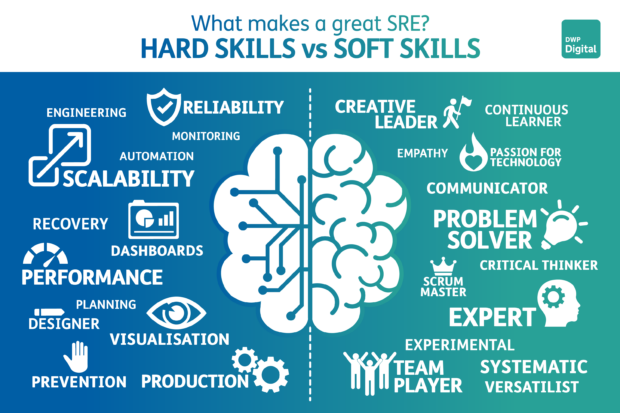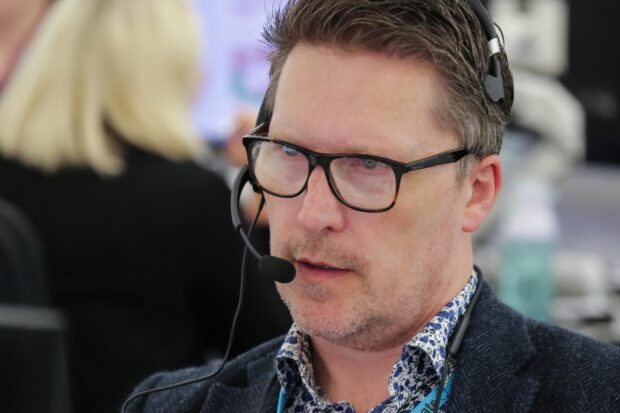
We’re part way through our journey to establishing a sustainable Site Reliability Engineering (SRE) capability, and one thing which has become increasingly apparent is the importance of developing good working relationships with people across the entire organisation.
DWP is massive so we need to build simple, common understanding of our concepts and intentions in order to achieve consistency in our engineering across our wide-ranging and compartmentalised organisation.
The only way to do this is to build good relationships with the people we want to help.
Discovering why relationships make a difference
I’ll shortly be entering my fifth decade of working in large organisations and they’ve all suffered from fragmentation in response to complexity and scale. The more complex the operation becomes; the more silos begin to appear. Some of this is down to an overly literal interpretation of frameworks and standards, but some of it is simply down to human nature and the inherent fear of vulnerability in the workplace. The easiest way to counteract those fears is to build trust, and that means building good relationships with each other.
It’s a lot easier than you think
I used to be a bit of a quality fanatic, always dotting i’s and crossing t’s. I had an inherent belief that with the right focus on process and documentation we could achieve just about anything. I was wrong, of course. We need people to get things done and, regardless of how much we automate, we will still need good relationships in order to achieve our ambitions.
I’ve been experimenting a lot in the past year, to see what works and what doesn’t in getting people to a shared understanding of what needs doing, how it’s best done, and who is responsible. In our team, we’ve moved away from building SRE as just another functional silo, and instead we’re using relationships, rather than relying on process, in order to achieve success.
Building good relationships can be easy if you share your thinking as early as possible with the people who can help you. Just doing that one simple thing has made a big difference to how we integrate our thinking across the organisation to co-develop ideas about how we can mature our capability at pace.

The SRE context for relationships
In our SREs we’re placing high value on building relationships. Developing those skills is every bit as important as the technical experience we’re looking for. This is especially relevant for SREs who are embedded within our development teams. Establishing sufficient trust is key to influencing the development lifecycle towards a more consistent and scalable model.
It’s not just our work with development teams that thrives on good relationships. We need to build sustainable engineering teams within our operations organisation, and that demands a positive collaborative mindset in all of our people. There are people who say it takes 10 years to achieve any kind of meaningful cultural shift in a large organisation, but our experiments have shown that good relationships act as an accelerator to achieving cultural change incredibly quickly.
We still have a way to go…
Our experiments continue as our practice evolves but one thing has become clear in recent months, and that is the essential need for good relationships as a foundation of change. In previous blog-posts, I’ve highlighted the balance we’ve struck between technical and non-technical skills, and how unique this approach is across the industry. Looking back, I can see that we are on track with our original thinking.
We're recruiting
Join us. Visit our careers website to see our current available roles.

Recent Comments